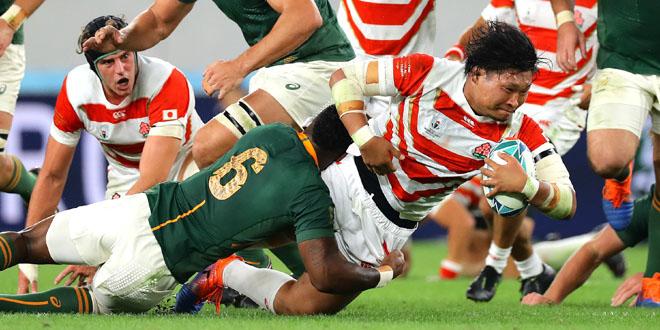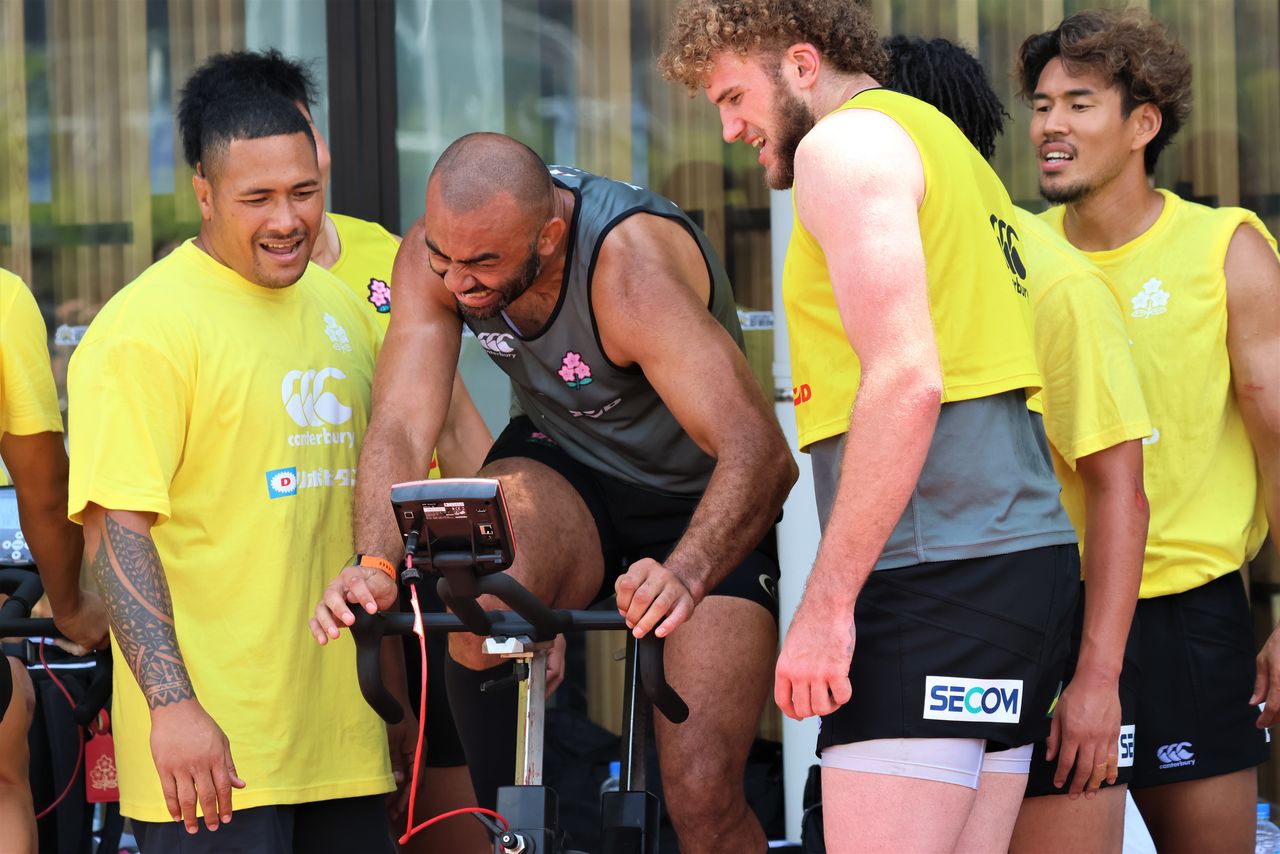
Rugby fever swept Japan in the autumn of 2019.
It was the first ever rugby world cup hosted in Japan—and indeed, in Asia. The national team took first place in the first round A pool, going four for four against major teams like Ireland and Scotland. It was the first time Japan made it to the top eight.
Captained by New Zealand–born Michael Leitch, the team was built under the catchphrase of “One Team” of players from all kinds of backgrounds: Australia, South Africa, Tonga, Samoa, South Korea, on and on. It won the hearts of many as a role model for a diverse, modern society. After the tournament, the team appeared in a parade in the Marunouchi district of central Tokyo attended by some 50,000. Japan’s rugby team left an impact on society that transcended mere sports.
It has been four years, and the next Rugby World Cup is upon us.
This time, the Japan team is in a new position. That historic advancement to the top eight of last time is no longer a goal, but an expectation that must be met. The players themselves have made this clear. From the start of training camp three months before the tournament, team members have said over and over that the goal this time is the championship.
There are probably those ridiculing that as a pipe dream. In the history of the world cup, New Zealand and South Africa have won it three times each, Australia twice, and England once. That’s it.
But Japan’s players are not speaking lightly. Training camp started June 12 in Urayasu, Chiba Prefecture, and the players have been heard saying it is their hardest ever. They start every morning with an hour of tackling practice in a tent set up in one corner of the field.
Jūjutsu (jiujitsu) and mixed martial-arts specialist John Donehue, who also has extensive experience coaching in the Australian 13-man rugby league, has set up a program of one hour of tackling and contact without breaks or water. During the course, any signs of “weakness,” like putting hands on knees, hips, or head, results in a penalty for the whole team. It’s a harsh training program that seems somewhat anachronistic in terms of modern safety and compliance ideals.
National team director Fujii Yūichirō says of the practice regimen: “If we want to be the world champions, we can’t lose on contact.” In the 2019 tournament, the team advanced to the top eight by adapting its tactics, using ingenious attacks and a tight scrum that resulted in an amorphous approach. They lost in the semifinals, though, to the eventual victor South Africa. Their issue now is how to build tough bodies that can withstand six weeks of continuous physical assault without wearing out, as well as putting together a deeply layered roster of players that can maintain top fighting shape over the long haul.


Be the first to comment